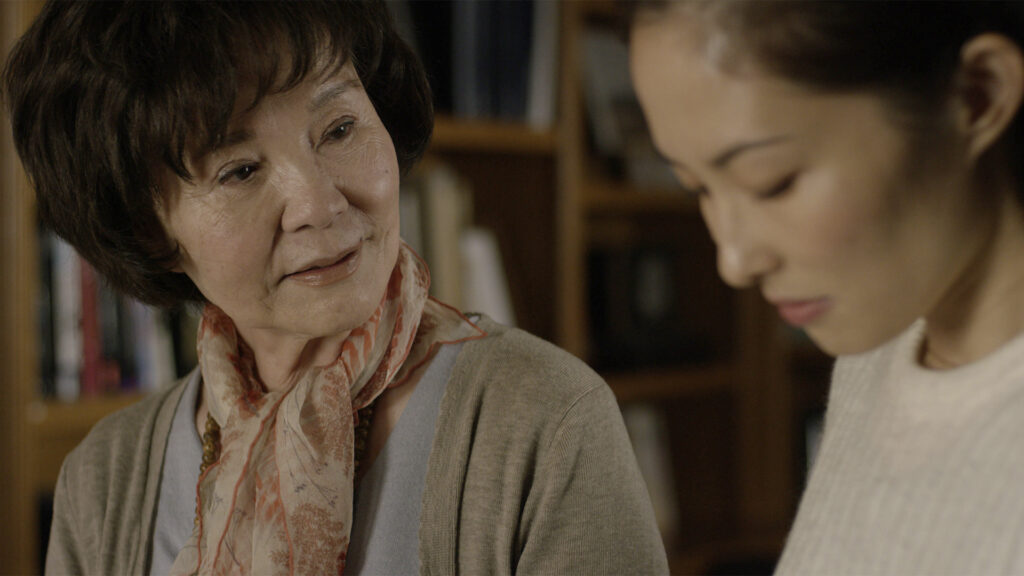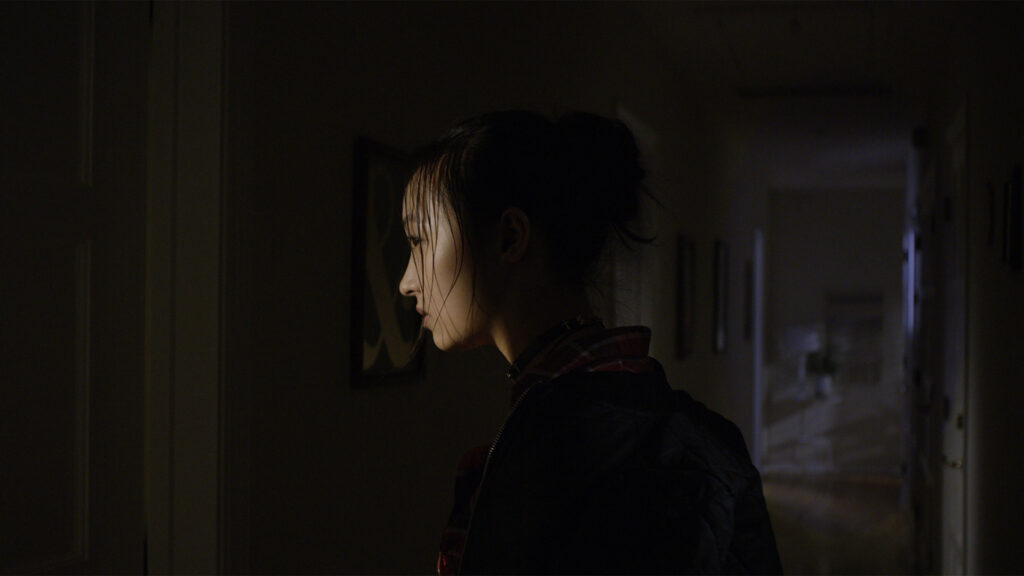A tightly wound tale of familial dysfunction, Beneath the Banyan Tree skilfully uncovers the cultural and generational gulfs that separate members of the Woo family.
Ah-Leh Gua, best known for her work on Ang Lee’s early projects, anchors the film as the unyielding matriarch, Mrs. Woo. She might worship her son, but she struggles to see eye-to-eye with her strong-willed daughter Ai-Jia (Kathy Wu), who twelve years ago left China for the U.S. to pursue her dreams of being a writer.

Mrs. Woo’s life is turned upside down when her son and daughter-in-law are jailed for fraud-related crimes and she, along with her teenage grandchildren – the quiet and deferential Yu (Jiayu Wang), and the rebellious Qi (Demi Ke) –, are forced to leave home and travel to Los Angeles to stay with Ai-Jia.
For the Woo matriarch, her son’s imprisonment only amplifies her daughter’s perceived failures and poor life choices. She is desperate to uphold whatever shreds of her family’s reputation remain; and from Ai-Jia being unmarried and without children at 35, to the white American boyfriend (Travis Goodman) with whom she shares a home, Mrs. Woo sees her daughter’s life as little more than a series of mistakes to be fixed. The one thing she does respect is her daughter’s successful writing career – except that it’s a lie, and Ai-Jia actually makes her living as a Hollywood guide for Chinese tourist groups.
Amidst all that, Yu is working through body image issues and figuring out his sexuality; Qi lashes out by skipping school and lying about parties; Ai-Jia is torn between her familial obligations, her feelings of inadequacy, and her desire for independence; and there’s poor Vance, the endlessly accommodating boyfriend who still gets left out of every conversation. Five people and three generations are forced to start a new life under each other’s scrutiny.

The result is as chaotic, complicated, and revelatory as one might expect. In an impressive feature debut, Nani Li Yang draws together a great cast, with authentically complex performances from Gua and Lu. There are times when Yang’s script falters or gets too wrapped up in itself – for instance, the boy next door (Miles Tagtmeyer) who Qi befriends is not only suicidal and sensitive, he’s also blind and has an alcoholic father thrown in for good measure. It’s too much and, paired with some instances of forced melodrama, serves only to detract from the screenplay’s more grounded, effective aspects.
But that’s a handful of exceptions in a feature that is overwhelmingly gentle and inquisitive in its search to heal cultural and generational divides; Beneath the Banyan Tree is a hopeful and promising debut from writer-director Nani Li Yang.
Beneath the Banyan Tree is out on demand now in the U.S. More details here.
